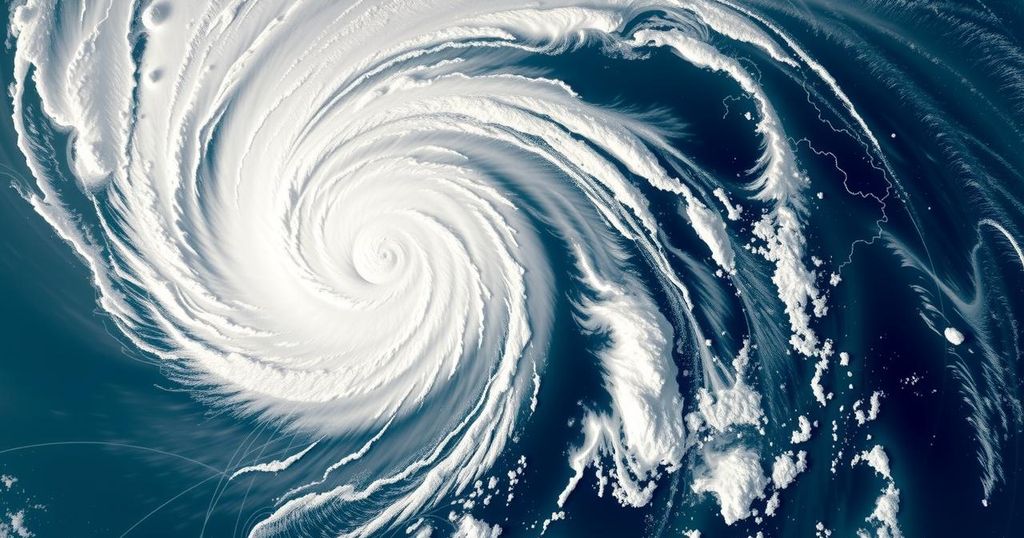Cyclone Chido Poses Serious Threats to Comoros, Madagascar, and Mozambique

Cyclone Chido is approaching Comoros, Madagascar, Mayotte, and Mozambique, prompting school closures and evacuations. With winds forecasted at 200 kph, over 2 million people in Mozambique may be affected. Climate experts link increased cyclone intensity to climate change, raising fears of flooding and disease outbreaks.
Cyclone Chido, a formidable tropical storm, is on a trajectory toward the islands of Comoros, Madagascar, Mayotte, and the mainland of Africa, specifically Mozambique. The cyclone is anticipated to bring potentially devastating winds and heavy precipitation, posing a serious threat to these regions. In response to the impending storm, authorities in Comoros have enacted a school closure directive in preparation for its expected arrival on Saturday morning.
The French territory of Mayotte is under a red alert from the French national weather service, reflecting the seriousness of the situation. In Mozambique, more than 2 million individuals in the northern provinces of Cabo Delgado and Nampula are urged to prepare for impact, as the Mozambique National Meteorological Institute forecasts winds reaching up to 200 kilometers per hour (124 mph).
Madagascar is also actively responding to the threat posed by Cyclone Chido. Emergency alerts have been distributed to residents, emphasizing the necessity for precautionary measures. Evacuations are currently being conducted in the northern region of Diana, which is anticipated to feel the full force of the cyclone’s impact. Supplies of food and emergency equipment have been distributed to vulnerable areas since the start of the week.
To support Mayotte in mitigating the potential impacts of the cyclone, the French government is mobilizing emergency resources. This includes the deployment of emergency personnel and equipment to conduct rescue and recovery operations in the region.
Climate specialists have raised concerns about the increasing intensity of cyclones in the area, attributing this trend to climate change. Cyclone Chido is likely to result in hazardous flooding, landslides, and could precipitate outbreaks of waterborne diseases such as cholera, dengue fever, and malaria. As the cyclone season progresses, residents are advised to remain vigilant and adhere to safety protocols to protect themselves from this natural disaster.
The presence of tropical storms, such as Cyclone Chido, poses significant risks to the regions surrounding the Indian Ocean, particularly as the cyclone season approaches. The area has witnessed cyclones becoming more severe, a shift attributed to the impacts of climate change. Tropical storms can lead to catastrophic flooding and landslides, posing long-lasting threats to public health and safety, including the risk of waterborne diseases following such disasters. The need for effective emergency response and preparedness plans is underscored during such events, especially in densely populated areas.
In summary, Cyclone Chido represents a formidable threat to the islands of Comoros, Madagascar, Mayotte, and Mozambique. With authorities initiating preemptive measures, including school closures and evacuations, the emphasis on preparedness is paramount. The predicted severity of the cyclone and its potential impacts underscore the importance of community awareness and resilience amid an increasingly volatile weather pattern. Remaining informed and prepared is essential as the region faces the challenges associated with such natural disasters.
Original Source: www.inkl.com






